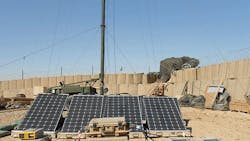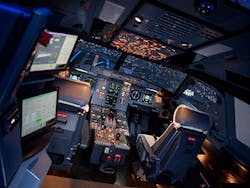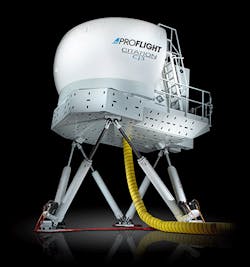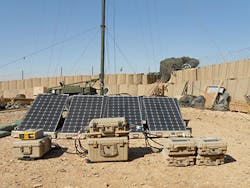Expansion Management: Aerospace Sector Flying High in Charleston, SC
As numbers go, this is a good one. Since 2007 Charleston, S.C. has seen a 300% increase in aerospace jobs.
There are 17,114 people working at 466 private aerospace firms. The largest employer is Boeing at 8,267.
“We have seen major growth in this area as more talent arrives,” explains Rebecca Ufkes, president of UEC Electronics, a gold star power systems supplier to Boeing. “We have had no problem finding skilled technology workers.”
In fact as of 2009, Charleston saw an 80% growth in jobs as the area is now the fastest growing mid-size metro for aircraft manufacturing in the U.S. It is also in the nation's Top 10 for workforce growth in aircraft mechanics, computer hardware and electrical engineers.
This did not happen by chance. “Our strategy is to engage and encourage regional stakeholders to take action in fostering the growth of this key sector,” explains David T. Ginn, CEO, of the Charleston Regional Development Alliance.
At the state level the numbers get even larger with a growth rate of more than 613% within the five-year period (2007-2012).
How did this happen?
The roots of this industry go back over 100 years when the Wright Brothers moved their Augusta, Ga. operations to Aiken, S.C. In the 1930s, the state’s Aeronautics Commission began strategic economic development plans for future economic development by identifying airfield sites that became Army Air bases. After WW II the state become host to a number of military bases.
Fast forward to 2009 when Boeing’s move to Charleston was the “catalyst that launched the distinction from South Carolina’s status as a state doing aerospace manufacturing to a state that is an aerospace ecosystem,” according to the South Carolina Aerospace Task Force, in their 2012 strategic plan called “You are Cleared to Land in South Carolina.”
Boeing, which operates in six buildings with over 2 million square feet of space in Charleston and North Charleston, bolstered the city yet again in 2013 by announcing it was investing another $1 billion in its campus creating 2,000 new jobs over the next eight years. In 2015 Boeing is expected to open its propulsion facility which was created to make engine inlet components for the new 737 MAX single-aisle passenger jet.
Boeing’s continued support is greatly appreciated. "Boeing is now a part of the fabric of South Carolina" said Govenor Nikki Haley. " So this is family and when family does well, we all get excited."
Boeing's Long Reach
As Boeing expands so does the aerospace supply chain.
A good example is TRU Simulation + Training, a Goose Creek, S.C- based division of Textron, which recently won the contract to supply Boeing with its Full Flight Simulator training suite for the 737 MAX.
TRU Simulation + Training was formed from three legacy companies --Mechtronix Inc. and OPINICUS Corp., and AAI Test and Training-- that were acquired by Textron in 2013.
“The story of how TRU Simulation + Training came to be headquartered in the City of Goose Creek is a perfect example of how the aerospace industry is taking off in the Charleston region," explains Goose Creek Mayor Michael Heitzler. “While the company has been rooted in Berkeley County since 1997, it was only until this year that they decided to establish their new headquarters here, in large part due to our available workforce and unique quality of life.
“Our region’s tremendous aerospace industry growth has also come with serious economic impact," added Heitzler. The total annual impact of this sector is between $17.4 billion and $22.5 billion.
The Charleston market is currently home to more than 74 aerospace and aviation-related businesses including Lockheed Martin, BAE Systems, Parker Hannifin, Eaton, GE/SKF and AMT Senior Aerospace.
Another corollary of Boeing’s influence is that companies established in one sector can expand to become suppliers. One such company is UEC Electronics, a subsidiary of Arotech Corp., which formed in Charleston in 1995. The company manufactures vehicle power, clean energy power generation systems, power distribution and power management products in four facilities employing 200.
The company was working in both the commercial and defense industries when in 2011 it was selected by Boeing to participate in a mentoring program that helps small companies expand into the aerospace sector. This resulted in UEC Electronics becoming a gold star supplier to Boeing and currently has a contract with Boeing.
This method of mentoring has served the company well. They completed the DoD Mentor-Protégé program as a protégé to the Raytheon Co. The company is also a graduate of the Navy’s MTAPP (Manufacturing Technical Assistance Production Program)—The Next Generation and the DSTARR (Defense Small Business Technology Readiness Resource) Program.
“A key reason we were able to expand was our ability to tap into available resources,” explains Ufkes. “This location is unusual in that there are a lot of organizations that will work with you to grow. There are city, state and regional economic development organizations as well as the Chamber of Commerce. We have taken advantage of a wide variety of programs from those that help small companies export products to job tax credit programs.”
Talent Pipeline
In addition to job tax credit programs, workforce development has been a strategic goal of this region that is backed up by specific formal programs.
"Between our statewide training program and local educational programs, Charleston supplies a steady, highly-skilled workforce for aerospace companies in the region,” says Ginn. “Big players in the aerospace industry that come to Charleston, such as TIGHITCO and Boeing, have relied on readySC, to gear up their workforce.”
Ginn points out that local colleges offer aeronautical programs and even high schools have implemented aerospace training education.
Specialized workforce training is available as well since the area is home to the U.S. Space and Naval Warfare Systems Center (SPAWAR) and Joint Base Charleston. Aerospace companies can pull talent from the 10,000+ ex-military and government employees that have a deep knowledge of the industry.
The myriad of training and growth of the aerospace supply chain is translating to large number of people moving into the metro area. “Our metro’s population has been growing three times faster than the U.S average for several years now, and the Brookings Institution ranked us #1 in the nation in 2011 for Brain Gain (the growth in the percentage of adults with college degrees over the past 10 years),” Ginn says.
It also doesn’t hurt that the city has a lot of amenities. “Charleston is a very desirable place to live,” says Jim Takats, president and CEO of TRU Simulation + Training. Takats moved to the area recently to oversee this division of Textron and says the benefits of the city help him bring in the talent he needs, whether it’s talent from outside the city or local talent.
Local talent has been an important source for the growing company. “We work with local universities to bring in interns,” says Kyle Crooks, vice president and general manager of Mission and Maintenance Training. “A high percentage of the interns are offered jobs.”
And the city stands ready to help. “It’s our job to connect companies with our network and knowledge available here in the Charleston region—that means linking them with right people, the right resources and the right information,” states Ginn.” Our organization works hard to develop a large and growing network of supportive business, academic and government partners that are dedicated to helping companies continue to grow in the region.”
Growth doesn’t seem to be a problem for either UEC Electronics or TRU Simulation + Training.
At the Farnborough International Air Show this past July, TRU announced it won a contract from Bell Helicopter to complete the design, development, manufacturing, installation, testing and certification of the Bell 525 Level D Full Flight Simulator (FFS).
UEC has had a busy year as well winning contracts from the Marines to provide ground renewable expeditionary energy network systems. And in June the company unveiled its new 3.5kW Man Portable Hybrid Power Management System to the Department of Defense (DoD).
All of this growth has the area dreaming big.
“Some projections estimate that aerospace employment and economic impact in South Carolina will mirror that of the automotive sector within the next fifteen years,” said the South Carolina Aerospace Task Force.



